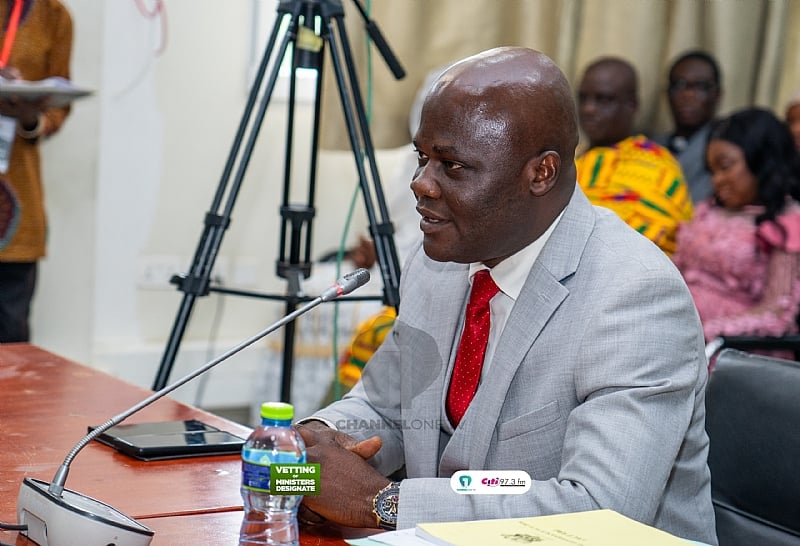The nominee for the position of Minister for Local Government, Chieftaincy, and Religious Affairs, Ahmed Ibrahim, has emphasized the critical need for a respectful and collaborative working relationship between District Chief Executives (DCEs) and Members of Parliament (MPs). During his vetting by the Parliamentary Appointments Committee, Ibrahim issued a clear warning against any disrespect or sabotage from DCEs towards MPs, highlighting the importance of such a relationship for the smooth functioning of Ghana’s local governance system. He underscored his commitment to facilitating this positive dynamic, drawing upon his extensive experience as a Parliamentarian and former Whip. Ibrahim believes that his background uniquely positions him to mediate and cultivate productive partnerships at the local level, ensuring that both DCEs and MPs work together effectively to serve the needs of their constituents.
Ibrahim’s emphasis on respect and collaboration stems from the understanding that both DCEs and MPs play crucial, yet distinct, roles in local development. DCEs, as the chief administrative officers of their respective districts, are responsible for the implementation of government policies and programs at the local level. MPs, on the other hand, represent the interests of their constituents in the national parliament and act as a bridge between the national government and the local communities. A harmonious working relationship between these two entities is therefore essential to ensure that local development needs are effectively addressed and that government policies are implemented in a manner that is responsive to the needs and aspirations of the people.
Ibrahim’s experience as a Whip for 12 years provides him with a nuanced understanding of parliamentary processes and the dynamics of intergovernmental relations. This experience, he asserts, equips him with the necessary skills to navigate the complexities of local governance and to effectively mediate any potential conflicts that may arise between DCEs and MPs. He pledged to leverage his parliamentary expertise to establish a platform for regular dialogue and interaction between DCEs and MPs, fostering an environment of mutual understanding and respect. This commitment to fostering open communication and defined roles signals a proactive approach to preventing misunderstandings and ensuring that both parties appreciate each other’s responsibilities within the broader framework of local governance.
The minister-designate stressed the necessity of clear communication and well-defined roles to prevent conflicts and foster collaboration. He believes that ambiguity regarding responsibilities can lead to friction and hinder effective governance. By ensuring that both DCEs and MPs have a clear understanding of their respective roles and responsibilities, he aims to create a framework for seamless cooperation and minimize the potential for conflict. This clarity, according to Ibrahim, will also enable both parties to focus on the shared goal of local development, putting aside any personal or political differences.
Ibrahim’s commitment to fostering a positive working relationship between DCEs and MPs is underpinned by the belief that collaboration is paramount for effective local governance. He argues that a collaborative approach, where both parties work together in a spirit of mutual respect, is essential for achieving developmental goals at the local level. By emphasizing the shared responsibility of DCEs and MPs to serve the needs of their constituents, Ibrahim hopes to create a culture of collaboration that transcends political differences and prioritizes the well-being of the communities they serve.
The minister-designate’s firm stance on the issue of respect and collaboration between DCEs and MPs sends a strong message to all stakeholders involved in local governance. His warning against any form of disrespect or sabotage, coupled with his commitment to fostering a collaborative environment, signifies a proactive approach to addressing a potential challenge to effective local governance. By emphasizing the importance of mutual respect and shared responsibility, Ibrahim aims to create a system of local governance that is driven by collaboration and focused on achieving tangible developmental outcomes for the benefit of all Ghanaians. His vision for a more harmonious and productive relationship between DCEs and MPs holds the promise of a more efficient and responsive local governance system, ultimately leading to improved service delivery and greater development at the grassroots level.














